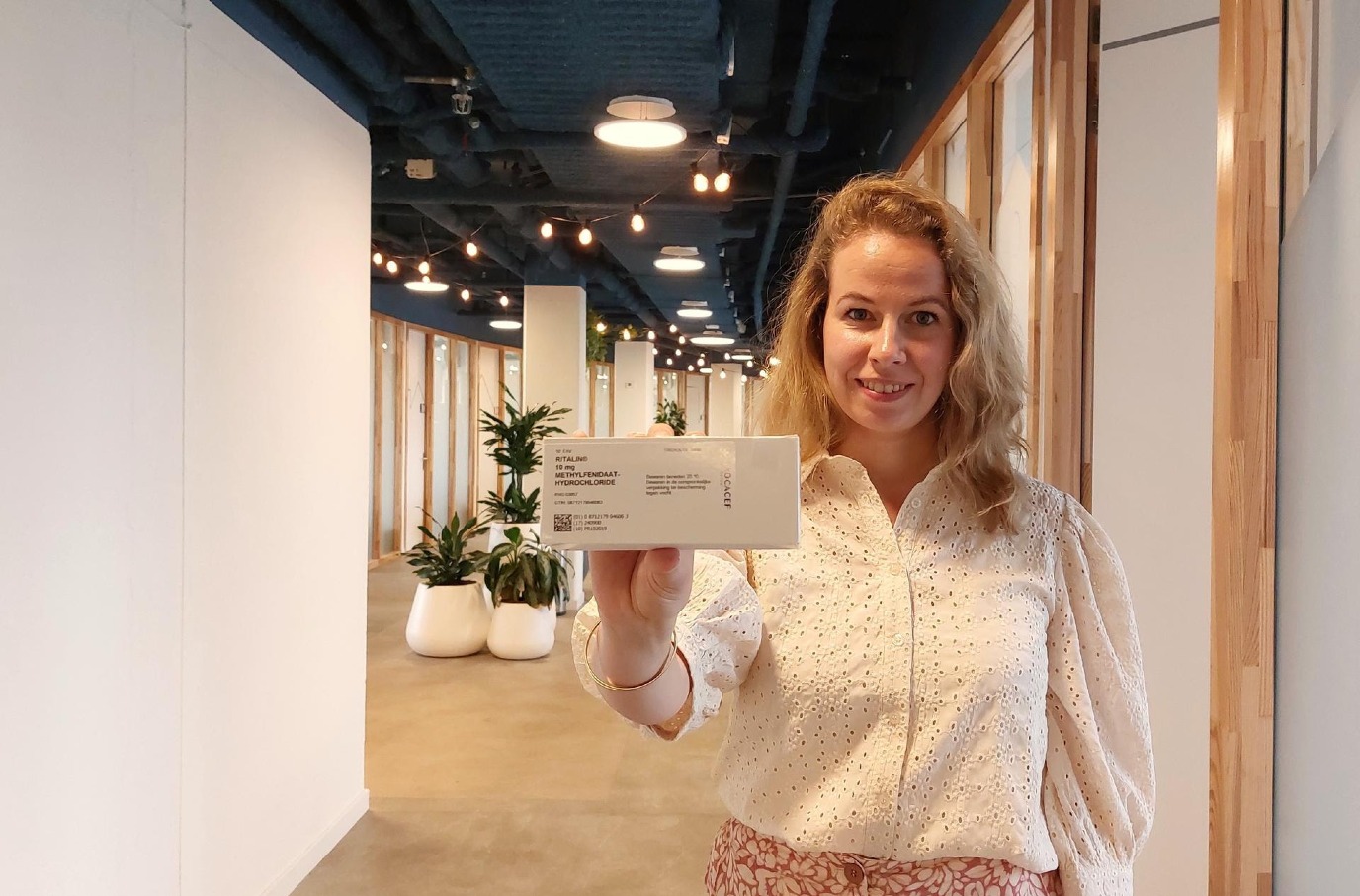Veel kinderen met ADHD kunnen eerder stoppen met Ritalin
Een deel van de kinderen met ADHD zou na twee jaar kunnen stoppen met het gebruik van Ritalin. Dat blijkt uit het promotieonderzoek van Anne-Flore Matthijssen. In samenwerking met Accare onderzocht zij Ritalingebruik bij kinderen en jongeren van 8 tot 18 jaar. Matthijssen ontdekte ook dat één op de drie huisartsen onder druk van ouders toch Ritalin voorschrijft.
Ritalin, Concerta, Medikinet en Equasysm zijn verschillende namen voor het stimulerende medicijn methylfenidaat, dat wordt voorgeschreven aan kinderen en jongeren met ADHD. Het is een veelvoorkomende ontwikkelingsstoornis die wordt gekenmerkt door aandachtsproblemen, impulsiviteit en hyperactiviteit. Op korte termijn helpt methylfenidaat goed om hyperactiviteit en onoplettendheid te verminderen, maar hoe goed het medicijn werkt op lange termijn is niet goed onderzocht.
Sinds het begin van deze eeuw is het gebruik van Ritalin door kinderen en jongeren zeer sterk gestegen. Dit was aanleiding voor Matthijssen om het gebruik onder de loep te nemen. ‘Ik vroeg me af of huisartsen en psychiaters Ritalin adequaat en verantwoord voorschrijven', vertelt ze. Ook gebruikt de meerderheid van de kinderen Ritalin langer dan twee jaar. ‘Het is belangrijk om te onderzoeken in hoeverre kinderen baat hebben bij langdurig gebruik. Niet alleen omdat er vanuit ander onderzoek al twijfels waren over de langetermijneffectiviteit, maar ook omdat Ritalin bijwerkingen kan hebben zoals een verminderde eetlust, moeite met in slaap komen, hoofdpijn en misselijkheid.’
Ritalin afbouwen
Matthijssen deed onderzoek in een groep van 94 kinderen van 8 tot 18 jaar die al langer dan twee jaar Ritalin gebruikten. In totaal duurde het onderzoek zeven weken, waarbij de helft van de kinderen Ritalin bleef gebruiken en de andere helft het medicijn in drie weken afbouwde. De groep die Ritalin afbouwde bleef daarna nog vier weken een placebo gebruiken.
Bij de groep kinderen die stopte met Ritalin zag Matthijssen wel degelijk meer ADHD-symptomen dan bij de groep kinderen die het middel bleef gebruiken. ‘Wat dat betreft blijft het een effectieve behandeling', zegt ze. ‘Maar bij 60% van de kinderen die stopten met medicatie stelde de behandelaar vast dat het over het algemeen niet slechter met het kind ging dan daarvoor. Dit geeft aan dat het merendeel van de kinderen dat al langer dan twee jaar Ritalin gebruikt, zou kunnen stoppen.’

Meer aandacht voor stoppen met medicatie
‘Stoppen met medicatie zou een veel grotere rol moeten spelen in de behandeling’, vindt Matthijssen. Op dit moment is de informatie over stoppen met Ritalin in de behandelrichtlijnen beperkt. ‘Het zou goed zijn als behandelaars aan het begin van een behandeling met Ritalin nadenken over een stopmoment en dat ook bespreken met de ouders en het kind.’
Huisartsen ervaren druk van ouders en scholen
Uit een enquête die Matthijssen hield onder 907 huisartsen bleek dat vrijwel alle huisartsen wel eens kinderen of jongeren doorverwijzen naar specialistische zorg zonder dat ze dit zelf nodig vinden. Ook gaf één op de drie huisartsen aan wel eens Ritalin voor te schrijven onder druk van ouders. Een op de vijf deed dit onder druk van scholen. Daarnaast vond het merendeel van de huisartsen dat de diagnose ADHD te makkelijk gesteld werd en Ritalin te makkelijk werd voorgeschreven.
Richtlijnen worden niet goed nageleefd
In Nederland behandelen zowel huisartsen als zorgprofessionals in jeugd GGZ-instellingen kinderen en jongeren met ADHD. Hier zijn verschillende richtlijnen voor. Uit het onderzoek van Matthijssen blijkt dat zorgprofessionals die richtlijnen niet altijd goed naleven. Haar viel op dat de beoordeling van de ernst van de ADHD maar in één procent van de gevallen werd uitgevoerd. Die ernstbepaling bepaalt mede of iemand Ritalin gelijk nodig heeft of dat eerst gestart kan worden met een oudertraining.
Matthijssen deed haar onderzoek in samenwerking met Accare. Ze promoveert op woensdag 15 mei.
Meer nieuws
-
26 februari 2026
Vici-beurs voor hoogleraar Neurobiologie Marieke Wermer
-
17 november 2025
Kunstmatige intelligentie in de zorg
-
04 november 2025
AI-Fabriek in Groningen zorgt voor digitale soevereiniteit
